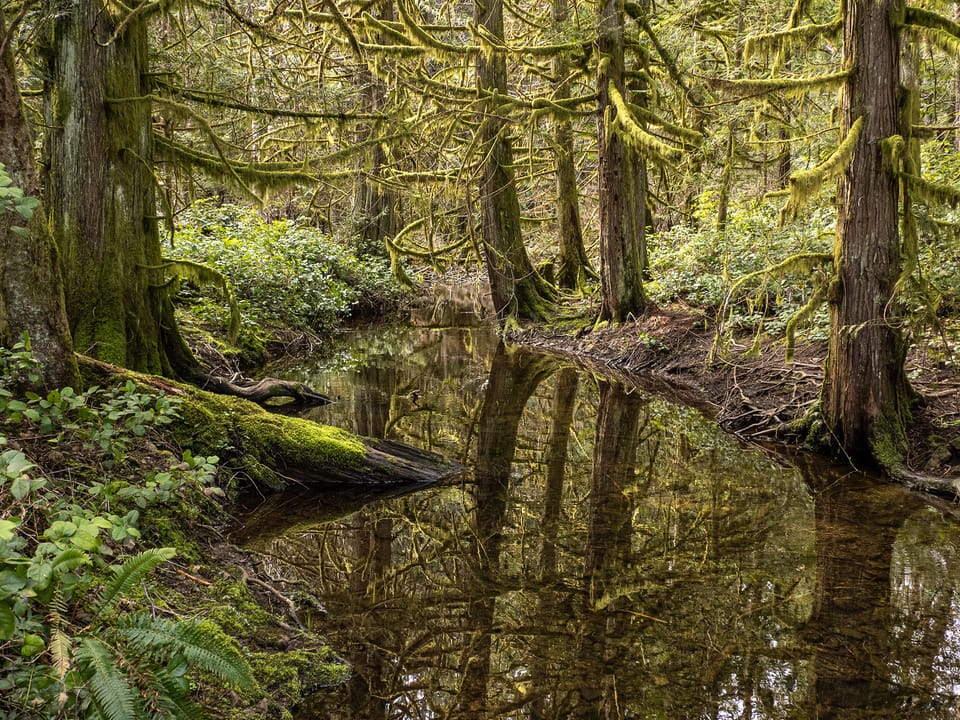EcoWest News, April 19, 2022

Welcome to EcoWest News, a weekly round-up of news and resources that you can put to use in addressing environmental issues and protecting the wild in your community.
Introducing . . . Climate Art Web
Climate Art Web brings together artists living in northern Turtle Island (Canada) who are invested in creating projects that relate to climate change, environmental justice, sustainability and place-based care and relationship. They’re currently designing a climate-related art map.
Research Matters
The Global Assessment of Private Sector Impacts on Water establishes that industry activities, in particular food products, textiles, and high tech and electronics, are having a severe impact on freshwater resources. [Global Institute for Water Security]
Across the West
Youth-led groups such as Shades of Sustainability and Embark Sustainability Society are creating greater diversity within BC’s environmental movement. [The Tyee]
A remote coastal First Nation in BC will soon have installed heat pumps in 90% of its homes, driving down energy consumption and improving air quality. [Toronto Star]
Provincial Parks
What is the role of provincial parks? Is it to protect wildlife and biodiversity, provide the public with recreational opportunities and connection to nature, or to support industrial development? Can a park have multiple uses?
The Government of Manitoba encourages mining exploration, including in provincial parks. Only a very limited group of wilderness parks and wilderness, backcountry, or heritage land use categories prohibit mining activity. Similar legislation is in place in British Columbia.
The Wilderness Committee is active in Manitoba, Ontario, Vancouver, and Victoria. Defending parks is one of their primary campaign areas. It is speaking out against road building and drilling activity in areas such as Manitoba’s Nopiming Provincial Park.
Forests
Drones dropped thousands of tree seeds on wildfire-charred land in British Columbia last November. “Trees can normally regenerate due to the scatterings of pine cones by the wind or with the help of animals. But when a fire burns too hot, there is no way for seeds to survive and trees to grow back naturally in charred soils.” Drones can reach areas that are hard to reach on foot. [The Verge]
Selective logging that protects bigger, older trees has environmental benefits as the mother trees keep the ground moist and “send nutrients, water and carbon directly into these little seedlings and help them get going.” [Haida Gwaii Observer]
In The Last of the Green Gold, the Canadian Council for Policy Alternatives outlines who is benefitting from logging BC’s forests and forestry’s long-term future. “With the best trees gone and revenues plummeting, what’s next?” [Policy Note]
Water
Melting glaciers increases the likelihood of landslides and flooding in Alberta’s mountainous communities. “As we contemplate new infrastructure, whether that’s a new subdivision, a new pipeline or a new road, we need to be thinking about what the hazards are now, but also what the hazards might be in 50 and 100 years.” [Calgary Journal]
Scientists suggest we may need man-made reservoirs to store the water currently stored by the glaciers. [Calgary Journal]
Around the World
Recent research has found that translocated bears take time to adjust to a new environment but don’t appear to pose a greater threat than resident bears. [Wildlife Research]
Here’s how to avoid eating a credit card’s worth of plastic every week. [euronews]
Framework, an upgradeable, customizable, repairable laptop, is now available in Europe. [Framework]
Nature's Wonders
A tiny island off the northern tip of Vancouver Island is home to more than two million birds. [Canadian Geographic]
Photo credit: https://www.flickr.com/photos/apmckinlay/52003340546
EcoFriendly West informs and encourages initiatives that support Western Canada’s natural environment. Like us on Facebook, follow us on Twitter, or subscribe by email.

Member discussion